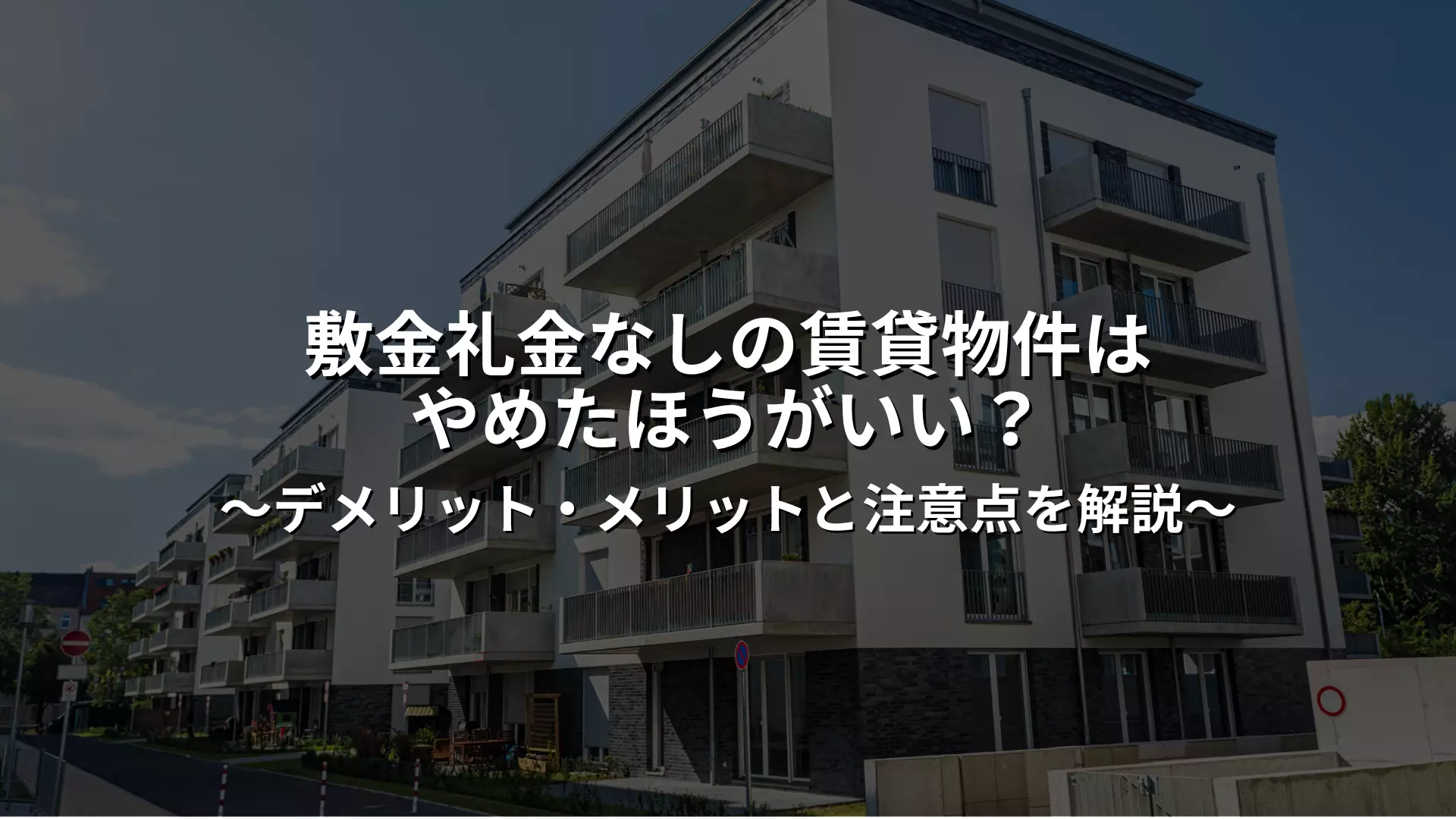Is it possible for part-time workers to live alone? Explaining the reality and challenges
It's entirely possible to start living alone while working as a part-timer, depending on the conditions and how you approach it. However, compared to full-time employees, income and employment stability are lower, and there are times when managing rent and living expenses, as well as screening for rental contracts, can be a disadvantage. When looking for a property, you need to make a comprehensive decision based on not only rent but also the overall cost of living, including common area fees, utility bills, and transportation costs. You will also often be required to use a guarantor or guarantee company when signing a contract, so it's important to prepare the necessary documents and money for initial costs in advance. Furthermore, when moving into a new place, be sure to check conditions directly related to your daily life, such as the livability of the area, security, and ease of use of the room.
In this chapter, we will provide specific explanations about the realistic balance between income and expenses, the proportion of rent you should pay, and concerns you may have before starting your new life.
Can you live with a low annual income or salary?
Even part-time workers can live alone if they plan their life well. Generally, rent should be less than one-third of their take-home pay, so if your annual income is around 2 million yen, it's not unreasonable to keep your monthly rent to around 50,000 yen. When renting a property, you can reduce the burden by choosing not only cheap rent, but also properties that include common area fees and utilities, and properties that come with furniture and appliances to reduce initial costs.
If you live in a furnished apartment, you may be able to save around 100,000 to 150,000 yen in initial moving costs. Also, by securing multiple ways to work, such as working multiple part-time jobs or working from home, you can deal with the risk of a decrease in income due to reduced shifts or poor health. Furthermore, by using remittances from your parents or savings to subsidize your living expenses, you can maintain a stable lifestyle even if your annual income is not high.
Percentage of part-time workers' income that can be spent on rent
Part-timers tend to earn less than full-time employees, so reducing the proportion of rent that accounts for overall living expenses is key to a stable life. If your take-home pay is 150,000 yen, it would be ideal to keep rent, maintenance fees, and management fees combined to under 45,000 yen. When searching for a property, it is effective to choose an apartment or condominium far from the station, an older building, or a compact layout.
However, even if rent is cheap, if transportation and utility costs increase, your total expenses will not decrease, so you need to make a decision based on the overall cost of living. One option is to consult with your landlord or real estate agency and negotiate the rent or look for properties with promotions. Properties with added value, such as free internet or water included, are also cost-effective options.
Things to know before starting to live alone
Many part-time workers who live alone worry about fluctuations in income and unexpected expenses. If their income decreases due to poor health or reduced shifts, it can become difficult to pay rent and living expenses. Furthermore, rental contract screening places great importance on employment status and proof of income, and you may be required to use a guarantor or guarantee company. Furthermore, after moving, there will be a series of payments to make, such as purchasing furniture and appliances, signing utility contracts, and paying fire insurance premiums.
To reduce these risks, it is effective to have about three months' worth of living expenses in savings and to review and reduce fixed expenses.In addition, by understanding local rules and the neighborhood environment in advance and making preparations to avoid problems and troubles, you can start your new life with peace of mind.
Breakdown and average cost of living alone
The costs of living alone mainly consist of monthly rent, common area and management fees, as well as living expenses such as food, utilities, communication costs, and entertainment costs. Furthermore, when moving, initial costs such as security deposits, key money, and agent fees will be incurred, as well as the cost of purchasing furniture and appliances. These expenses will vary depending on the area you live in, the property conditions, and your lifestyle, but knowing the going rate in advance will help you avoid going over budget. Setting rent too high will put pressure on other living expenses, so it's important to clarify why you chose that area and property, and run a useful household simulation.
In this chapter, we will explain in detail the estimated rent, common area charges, and management fees, the average cost of living necessary for daily life, and how to calculate the initial costs of furniture, appliances, and moving expenses.
Estimated rent, common area fees, and management fees
Rent accounts for the largest portion of expenses for those living alone, and is the basis for setting a budget. Generally, rent should ideally be less than one-third of your take-home pay, so if your take-home pay is 150,000 yen, it would be safe to keep it under 45,000 yen. Maintenance fees and common area charges vary depending on the property's facilities and age, and in urban areas they can be around 5,000 to 10,000 yen. Properties with extensive facilities such as auto-locks, delivery boxes, and elevators tend to have higher maintenance fees, but they offer value in terms of security and convenience. If you want to keep rent low, choosing an apartment far from the station or an older building is also an effective option.
However, even if the rent is cheap, your total expenses will not decrease if commuting costs and utility bills increase, so you need to look at the overall balance when making a decision.
Average living expenses (food, utilities, communication, entertainment)
Living expenses consist of monthly fixed and variable costs excluding rent. Food expenses can be kept to around 15,000 to 25,000 yen if you cook mostly at home, but can exceed 30,000 yen if you eat out a lot. Utility bills vary depending on the season and usage, but average around 7,000 to 12,000 yen. Communication costs for a smartphone and internet connection combined are around 5,000 to 10,000 yen, and switching to a low-cost SIM or reviewing your plan can result in significant savings. Entertainment expenses depend on your lifestyle, but a good guideline is to aim for 5,000 to 15,000 yen.
For part-time workers in particular, living expenses are likely to change depending on working hours and shifts, so it's helpful to get into the habit of recording and reviewing your monthly household budget. Reviewing fixed expenses and saving money will directly lead to a stable life in the long term.
How to calculate furniture and appliance purchase and moving costs
When you move out on your own for the first time, purchasing furniture and appliances will be a major expense. The bare minimum you'll need is a refrigerator, washing machine, microwave, lighting, and air conditioner, and buying all of these new will cost between 100,000 and 150,000 yen. Furniture such as beds, tables, and storage can cost an additional 50,000 to 100,000 yen. If you want to save money, using recycle shops and flea market apps is also an effective way to do so. Moving costs vary depending on the distance and amount of luggage, but the average cost for a single person is around 20,000 to 60,000 yen.
Additionally, initial costs such as security deposit, key money, agent fees, and fire insurance premiums will amount to four to six months' rent, so be sure to calculate in advance how much money you will need to prepare. You can reduce the burden on your household budget by prioritizing furniture and appliances and planning to purchase more later as needed.
Search for a room
Only furnished properties with appliances are listed!
How to reduce initial costs and tips for finding a property
When you start living alone, not only are monthly rent and living expenses a major burden, but initial costs such as security deposits, key money, and agent fees also become a major burden. Initial costs are generally estimated at four to six months' rent, which means that for a property with a rent of 50,000 yen, you'll need around 200,000 to 300,000 yen. However, by carefully considering the terms and conditions when searching for a property and negotiating before signing a contract, you can significantly reduce this cost. Comparing terms and gathering information is key to success, especially for first-time renters and part-time workers who want to conserve as much money as possible.
In this chapter, we will explain specific ways to save on initial costs, such as how to make the most of properties with no deposit or key money, things to be aware of, tips for reducing brokerage fees and fire insurance premiums, and using furnished rentals or shared houses.
Benefits and points to note about properties with no security deposit or key money
The biggest advantage of properties with no security deposit or key money is that they significantly reduce the initial costs required when signing a contract. For a property with a rent of 50,000 yen, just being exempt from these fees can save you around 100,000 yen. This is especially appealing for students, women living alone, or those moving for the first time, as it allows you to keep costs down and use them to prepare for life.
However, if there is no security deposit, the cost of restoring the property to its original condition when you move out may be high, and you may also be charged cleaning and repair fees. Similarly, even if there is no key money, it is important to understand why that condition has been set and compare the location and facilities with other properties. Check the moving-out conditions and whether there are any additional costs before signing the contract to reduce the risk of future expenses.
Tips for reducing brokerage fees and fire insurance premiums
The average brokerage fee is one month's rent plus tax, but some real estate companies offer half-price or no-fee campaigns. When searching for a property, it is efficient to search for conditions such as "no brokerage fee" or "0.5 months." Fire insurance premiums are often required at the time of signing the contract, and the average price is around 15,000 to 20,000 yen for two years. You can save money by reviewing your insurance coverage and keeping only what you need for your lifestyle.
There are also options for using insurance other than that specified by the real estate company, and comparing multiple companies can result in differences of several thousand yen. These costs can be confirmed in the estimates and contracts prepared before signing the contract, and can be useful in negotiating terms. Make your selection by considering not only short-term savings but also the long-term impact on your household finances.
Utilizing furnished rentals and shared houses
Furnished apartments come equipped with the bare essentials, such as a refrigerator, washing machine, microwave, and bed, eliminating the initial costs of 100,000 to 150,000 yen that would be incurred if you were to purchase new equipment. This is especially useful for people moving to a new location for the first time or those planning a short stay.
Shared houses offer lower rent and utility costs than the market average, and many properties include internet fees, which directly reduces monthly fixed costs. Many properties have excellent common spaces and facilities, so you can move in with almost no furniture. However, since you'll be living together, it's essential to check the living rules and privacy regulations. In popular areas, listings fill up quickly, so it's important to act early to secure a property that meets your requirements.
Rental contract and screening process
In order to move into a rental property, you must undergo an inspection before signing a contract. The inspection is an important process by which real estate companies and landlords determine whether you can pay rent stably. In particular, part-timers tend to be seen as having lower income and employment stability than full-time employees, so it is important to prepare the necessary conditions and documents in order to pass the inspection.
This chapter will explain in detail the conditions for passing the screening and the reasons for them, the necessary documents to prepare if you use a guarantor or guarantee company, and the initial costs and payment methods involved when signing the contract. Understanding the screening process and differences, and making preparations according to your situation, will enable you to sign the contract and move in smoothly.
Conditions for passing the screening even if you are a part-time worker
In order for part-time workers to pass the screening for a rental contract, they must demonstrate sufficient ability to pay the rent. As a guideline, it is desirable for rent to be less than one-third of your monthly income, so if your take-home pay is 150,000 yen, it would be safe to keep the combined rent and management fees to under 45,000 yen.
Additionally, having a long tenure at your current employer increases your credibility, so it's advantageous to highlight your track record of working steadily at the same workplace. Having multiple sources of income, such as multiple part-time jobs or side jobs, and being able to prove those sources of income will give you even more security. Information like the amount of savings, remittances from parents, and even job offers if you're currently job hunting are also positive factors. Organizing this information and presenting it to landlords and real estate companies will increase your chances of passing the screening process.
Required documents when using a guarantor or guarantee company
If you are using a guarantor or guarantee company, you can make the process go more smoothly by having the necessary documents ready by the time of signing the contract.
If you wish to have a guarantor, you will need identification (driver's license or My Number card), a seal certificate, and proof of income (such as a withholding slip or tax payment certificate).
Even when using a guarantor company, you will be required to provide the tenant's identification, proof of income, and proof of employment. In the case of part-time workers, proof of income will be provided by employment contracts, pay slips, and bank transfer records. Required documents and screening criteria vary depending on the company, so it is helpful to check in advance. The average fee for using a guarantor company is around one month's rent, and you will need to include this in your initial costs when planning your finances.
Initial costs and payment methods required when signing the contract
When signing a rental contract, several initial costs will be incurred at once, such as a security deposit, key money, brokerage fee, advance rent, guarantee fee, fire insurance fee, etc. Generally, you will need the equivalent of 4 to 6 months' rent, so if the rent is 50,000 yen, you will need to prepare around 200,000 to 300,000 yen.
The most common payment method is bank transfer, but recently some real estate companies have started accepting credit card payments and installment payments. When signing the contract, be sure to prepare the necessary documents, such as your seal, ID, and proof of income. It is important to always check the payment deadline and method before signing the contract to avoid any problems later.
Also, contract terms and amounts vary depending on the real estate company and area, so it is a good idea to compare multiple properties and contract details.
Search for a room
Only furnished properties with appliances are listed!
Tips to save money on living expenses
When living alone, the stability of your household finances depends on how efficiently you can manage your monthly living expenses. Reviewing fixed and variable costs such as rent, utilities, communication costs, and food is a great way to save money. Particularly for part-time workers, whose incomes tend to fluctuate, it's important to incorporate ideas into your daily life to reduce living expenses.
This chapter explains specific money-saving techniques, from choosing an area to lower rent, to reviewing utility and communication costs, to cutting food costs through cooking and shopping. By making small adjustments over and over again, you can create more space in your life while maintaining a comfortable living environment.

Choosing an area to lower rent
Rent accounts for the largest portion of living expenses, so choosing the right area is important to maximize savings. Rent tends to be cheaper in areas more than 10 minutes' walk from the station or around stations where express trains do not stop. Even within the same city, there can be a difference of 10,000 to 20,000 yen in market prices depending on the area. Choosing an older property or a compact one-room apartment is also an effective option.
However, even if you lower your rent, your total expenses will not decrease if your transportation and utility costs increase, so you should also consider the convenience of commuting to work or school and the living environment. It is important to compare popular areas with suburban areas and consider which suits your lifestyle and budget.
How to review your utility and communication costs
You can save money on utility and communication costs in the long term by simply reviewing your contract terms and usage. Optimizing your electricity contract amperage and rate plan, and choosing a property that uses city gas, can save you several thousand yen per month. You can also save money on water by doing laundry multiple times and shortening your shower time through everyday household chores. By taking advantage of low-cost SIM and fiber optic line campaigns, you can reduce communication costs from over 10,000 yen per month to around 5,000 to 7,000 yen.
You can also receive discounts by signing up for a set of multiple services. Reviewing fixed costs in this way only takes a single step, and the benefits will last for a long time, so the key to successful savings is to prepare early.
Shopping tips to keep food and daily necessities cheap
You can make big savings on food and daily necessities by changing your daily habits. By simply cooking mostly at home, you can keep your monthly food expenses to around 15,000 to 20,000 yen. Buying in bulk at wholesale supermarkets or discount stores and using frozen or prepared food can help you reduce eating out and going to convenience stores.
For everyday items, take advantage of drugstore sales and point rewards, and online shopping subscriptions and outlet items are also useful. Make a shopping list in advance and buy only what you need to avoid impulse buying.
These ideas allow you to reduce the burden on your household finances while maintaining a quality of life, even if you are a part-time worker and your income is not stable.
How to secure income to achieve a stable life
In order for part-time workers to continue living alone in a residential environment, they need a stable source of income to cover rent and living expenses. If their income is unstable, they face the risk of struggling financially due to unexpected expenses or reduced shifts. This is why it's important to have multiple sources of income and to work in a way that allows for future income growth.
This chapter explains how to increase your income by working multiple part-time jobs or side hustles, career planning for those aiming for full-time employment, and how to use a household account book to keep track of your monthly income and expenses and reduce waste. Securing a stable income is the foundation for maintaining a long-term life on your own.
Increase your income by working multiple part-time jobs or a side job
An effective way to increase your income is to work multiple part-time jobs. Combining jobs where shifts can be easily adjusted, such as working at a restaurant, convenience store, or event staff, can help reduce fluctuations in your monthly income. Furthermore, side jobs like data entry, writing, or online store management that can be done from home are useful because they allow you to earn additional income while reducing travel time and expenses.
When starting a side job, it's important to clarify why you chose that job and prepare a reasonable schedule. Securing multiple sources of income allows you to respond flexibly to sudden reductions in shifts or changes in workplace, and gives you more leeway to pay your rent and living expenses.
Long-term career plan aiming for permanent employment
If you want to stabilize your life in the future, it is effective to make a career plan aiming for permanent employment in the long term. Full-time employees have comprehensive benefits such as social insurance, paid vacation, and bonuses, and can ensure a stable income. It is also helpful to start with an employment status that has the potential to lead to permanent employment, such as a contract employee or temporary employment with a view to permanent employment.
Furthermore, investing in qualifications and skills will increase your chances of moving into higher-paying jobs. For women, choosing a job and working style that takes into account changes in life stages is also important. Planning your career direction by working backwards is the key to living a long and secure life.
Use a household account book to manage monthly income and expenses
For part-time workers with limited income, keeping a household account book is an effective tool for protecting your livelihood. By keeping a household account book, you can separate your monthly expenses into "fixed expenses" and "variable expenses" and reduce unnecessary expenses.
Fixed expenses include rent, utilities, and communication costs, while variable expenses include food, entertainment, and daily necessities. Recently, services that automatically record expenses by linking smartphone apps to bank accounts and credit cards have become popular. Looking back each month can help you identify areas for improvement, allowing you to increase the amount of money you put toward savings and asset formation, which will also lead to peace of mind for the future. Planned income and expenditure management is essential for maintaining a stable lifestyle for the long term.
Search for a room
Only furnished properties with appliances are listed!
Preparations and lifestyle habits to reduce anxiety about living alone
Living alone for the first time can bring both excitement and anxiety. Particularly for part-time workers, income and lifestyles are often unstable, and they may worry about whether they can handle unexpected problems or sudden expenses. To alleviate these anxieties, it's important to plan ahead and prepare for your move and establish a foundation for your life.
In this chapter, we will explain, with helpful examples, how to create a preparation list before moving in, tips for purchasing appliances and furniture efficiently while keeping costs down, and how to get along with neighbors and take crime prevention measures to live safely and comfortably.
Preparation list before moving
Before moving, make a list of all the necessary procedures and belongings to avoid confusion and omissions on the day of the move.
Prioritize procedures such as transferring your residence registration, turning on utilities (electricity, gas, water), and signing up for an internet connection. Also, make arrangements for a moving company, get quotes, and prepare cardboard boxes and packing materials early.
If you are planning to use new large appliances such as a refrigerator or washing machine, it is a good idea to check the delivery route and installation space. In terms of costs, it is important to know the payment dates for initial costs and moving fees, and to have the necessary amount secured by the day. By planning your preparations, you can start your new life smoothly.
How to arrange appliances and furniture and priorities
There are many appliances and furniture necessary for living alone, but buying everything at once can be a big burden. It is more efficient to first prioritize essentials such as a refrigerator, washing machine, microwave, lighting, and bed, and then purchase storage furniture, tables, cooking utensils, etc. according to your living situation. Choosing a property that comes with furniture and appliances will reduce initial costs and allow you to start using them right from the day you move in.
In addition, secondhand shops and flea market apps can help you save money by offering good-condition secondhand items at low prices. Clarifying your priorities is not only important for avoiding unnecessary spending, but also for making effective use of limited space.
Neighborhood relations and crime prevention measures to prevent trouble
To live safely, it is essential to take crime prevention measures and maintain appropriate interactions with neighbors. In terms of crime prevention, locking your front doors and windows, as well as using door chains, auxiliary locks, and security film are effective. Using delivery boxes and lighting timers can also increase crime prevention. When interacting with neighbors, even simply exchanging greetings and small conversations can help build relationships that allow you to help each other in emergencies or when problems arise.
For women living alone, choosing a property with high security and being mindful of the time you return home can help to ensure safety. Checking local rules and etiquette in advance and preventing potential problems is the key to maintaining a comfortable life.
Summary | How to start living alone with peace of mind even if you are a part-time worker
While it's perfectly possible for part-time workers to live alone, careful planning is essential, including managing rent and living expenses, dealing with contract screening, and saving on initial costs. This article provides a wide range of useful information, including cost breakdowns, average rates, ways to save money, ways to secure income, and creating habits to maintain a stable lifestyle. By using this information to create a household budget that suits your income and lifestyle, you can start your new life without stress and with peace of mind.
The important thing is to understand why that action is necessary and incorporate it into your daily life. By gathering information in advance and taking concrete actions, you can move closer to a stable life in any situation.
Key points about costs, living expenses, and screening introduced in the article
In this article, we first clarify the breakdown and average cost of living alone, and provide a rough guide to living expenses such as rent, common area charges, and management fees, as well as food, utilities, and communication fees. We also introduce tips for finding a property to reduce initial costs when signing a lease, and how to make use of furnished properties and shared houses. We also provide detailed explanations of the conditions and documents required for part-time workers to pass the screening, as well as how to use guarantors and guarantee companies.
By understanding and preparing these things in advance, you can reduce the burden of rent and living expenses and move in smoothly. In terms of daily life, everyday methods such as saving money, ways to secure an income, crime prevention measures, and getting along with neighbors are key to supporting a stable life.
Saving and preparation steps you can take today
To start living alone with peace of mind, it's important to take small steps starting today.
First, start by keeping a household budget to understand your income and expenses, and review your fixed and variable expenses separately. The sooner you start researching areas and comparing properties to reduce your rent burden, the more effective the results will be. To reduce living expenses, it is effective to review your utility and communication contracts and switch to cooking your own meals.
When preparing to move, you can reduce initial costs by prioritizing furniture and appliances and using second-hand items or properties that already come with furniture and appliances. Furthermore, if you save up about three months' worth of living expenses, you can deal with unexpected expenses or a loss of income. By steadily making these preparations, even part-time workers can achieve a stable life on their own.
Things to keep in mind and how to use support to successfully live alone
To successfully live alone, you need a realistic plan that takes into account your current income and life experience.
For part-time workers in particular, it is important to secure a stable income to cover rent and living expenses, and to prepare for unexpected expenses. Getting support from parents and advice from acquaintances can be a great help in resolving worries and problems.
On the other hand, late rent payments and unreasonable contracts should be avoided as they will damage your credibility and become a major drawback. After signing a rental contract, it is important not to forget to enroll in national health insurance and various public services. In order to aim for a stable life as a working member of society in the future, reviewing your current lifestyle and acting in a planned manner is the shortcut to success.





























